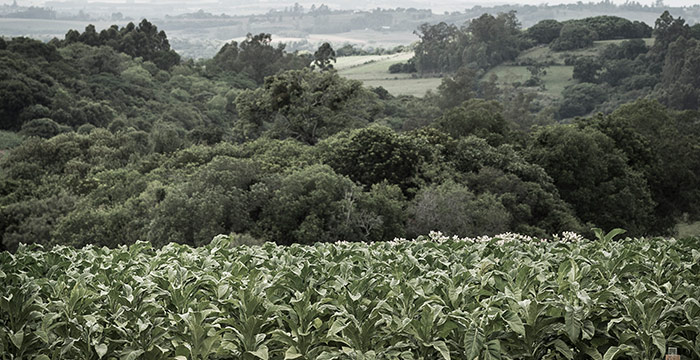
Malawi, Africa
ARISE inspires farmer
Theater drives action
An experienced Malawian smallholder tobacco farmer attended an ARISE theater performance and was convinced to remove his children from working on his farm and instead put them into education. His business became more successful and he sees a brighter future for his children.
Rozario Kausiwa has been an ordinary smallholder tobacco farmer for the past 18 years. Like other tobacco farmers in his village of Kaziputa in Ntcheu District, Malawi, he engaged his own children and those of others to work on his farm. Two of his children dropped out of school and the other two attended school sporadically during the tobacco-growing season.
Rozario claimed that he did not have enough money to hire adult workers. But the day he attended an ARISE-sponsored theater performance was a turning point. The Theater for Development was performed by University of Malawi students and held at Dauka School, and Rozario realized that children need to be given a chance to go to school and that they will not be able to hire adult workers for their farms in the future if they are not educated. Soon thereafter he encouraged one of his children to enroll in the Dauka School, and two others in the ARISE Model Farm School (MFS) and brick-laying course.
Rozario says that in 2013 he produced quality tobacco leaf that earned him MWK 1,780,000 (USD 4,208), which was roughly double what he had earned in previous years. He attributes it to the hiring of adult workers who are more knowledgeable and productive than children.
‘I am grateful for the awareness of child labor that I gained from the performance at Dauka. It has helped me to stop engaging children in my farms. I regret that I could have been a more successful farmer had I stopped this practice a long time ago’, said Rozario.
He now works with other farmers in Kaziputa Village to curtail the employment of children on tobacco farms. They have come up with their own village savings loan fund that enables them to borrow money to hire adults during the growing season, and the money is paid back after selling their tobacco leaf.
‘I work with ARISE partners to report any farmer who is involved in child labor and I will continue to do so until this practice has come to an end’, emphasized Rozario. He now believes that it’s not only poverty that perpetuates tobacco farmers using child labor, but he believes that it also involves social beliefs and a lack of adequate awareness.
‘I urge the government and ARISE to do more awareness-raising on child labor and I am sure just as it was with me, more farmers will change this practice. They need to understand that it’s socially and legally wrong to do so’, he added.
With his new role of creating child labor awareness among other small-scale tobacco farmers, he was featured in a radio debate organized by Centre for Social Concern and Trocaire on the role of farmers in the reduction of child labor. This creates an opportunity for a local role model and often stimulates a ripple effect in the local communities.




